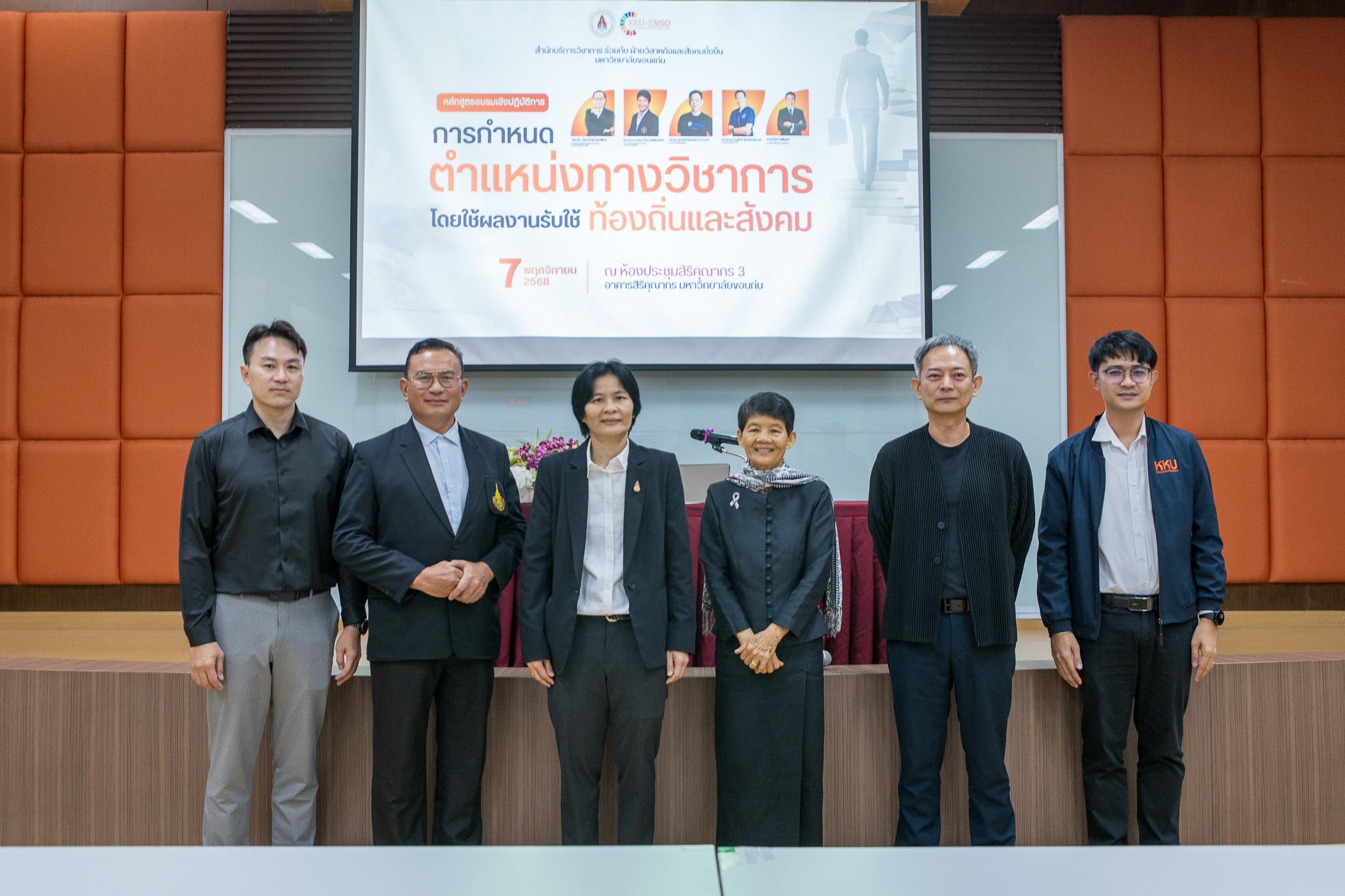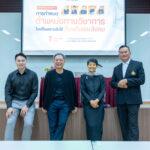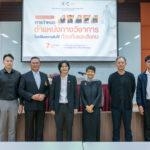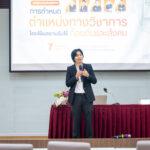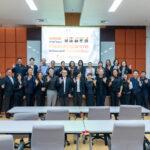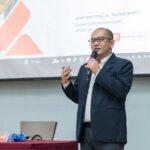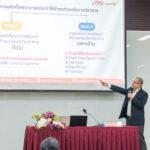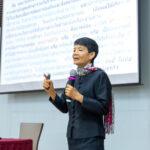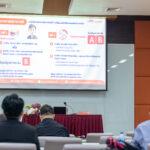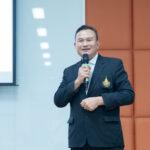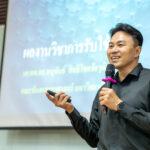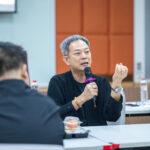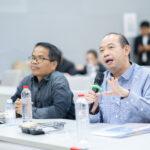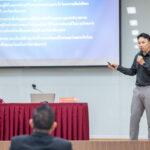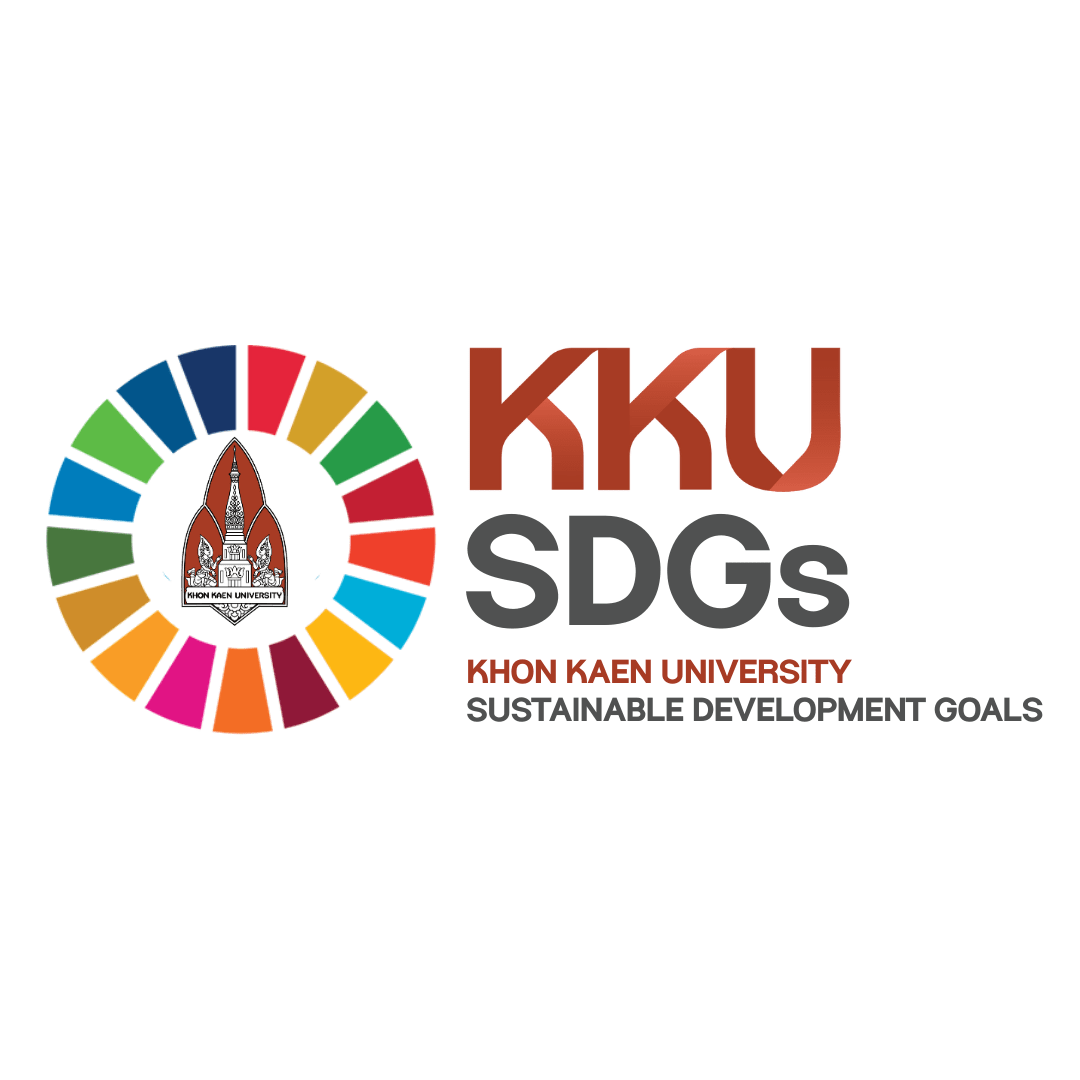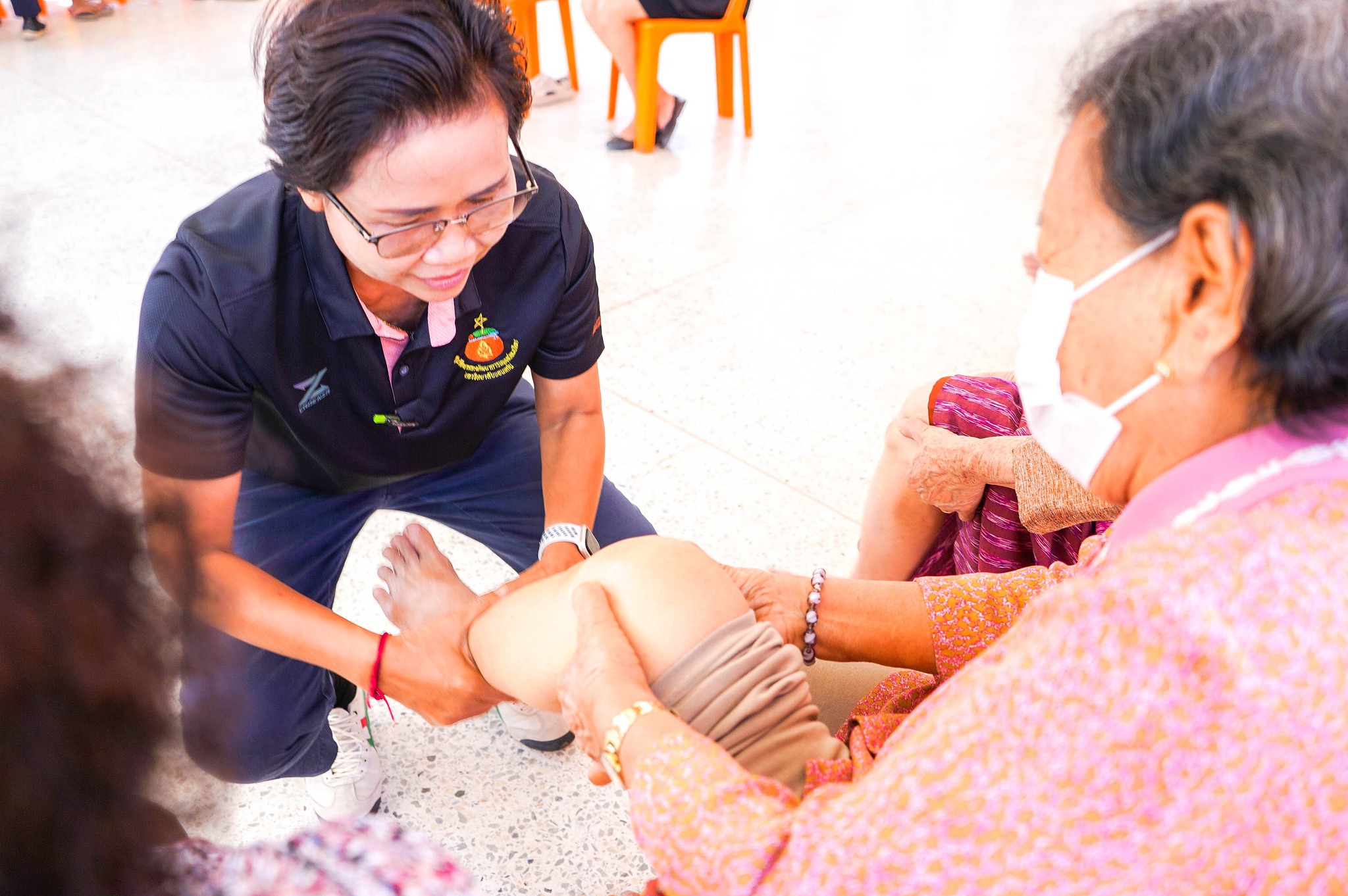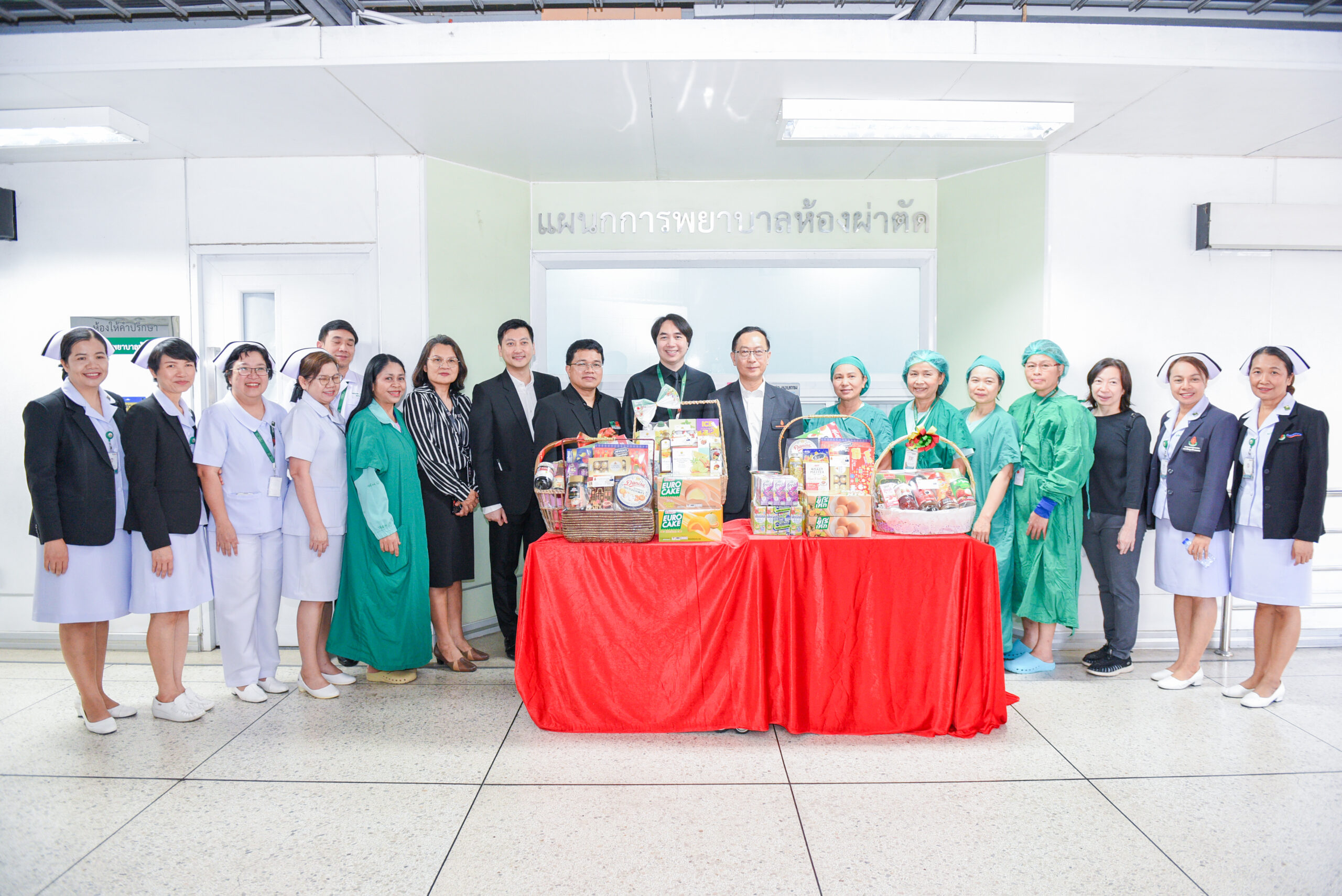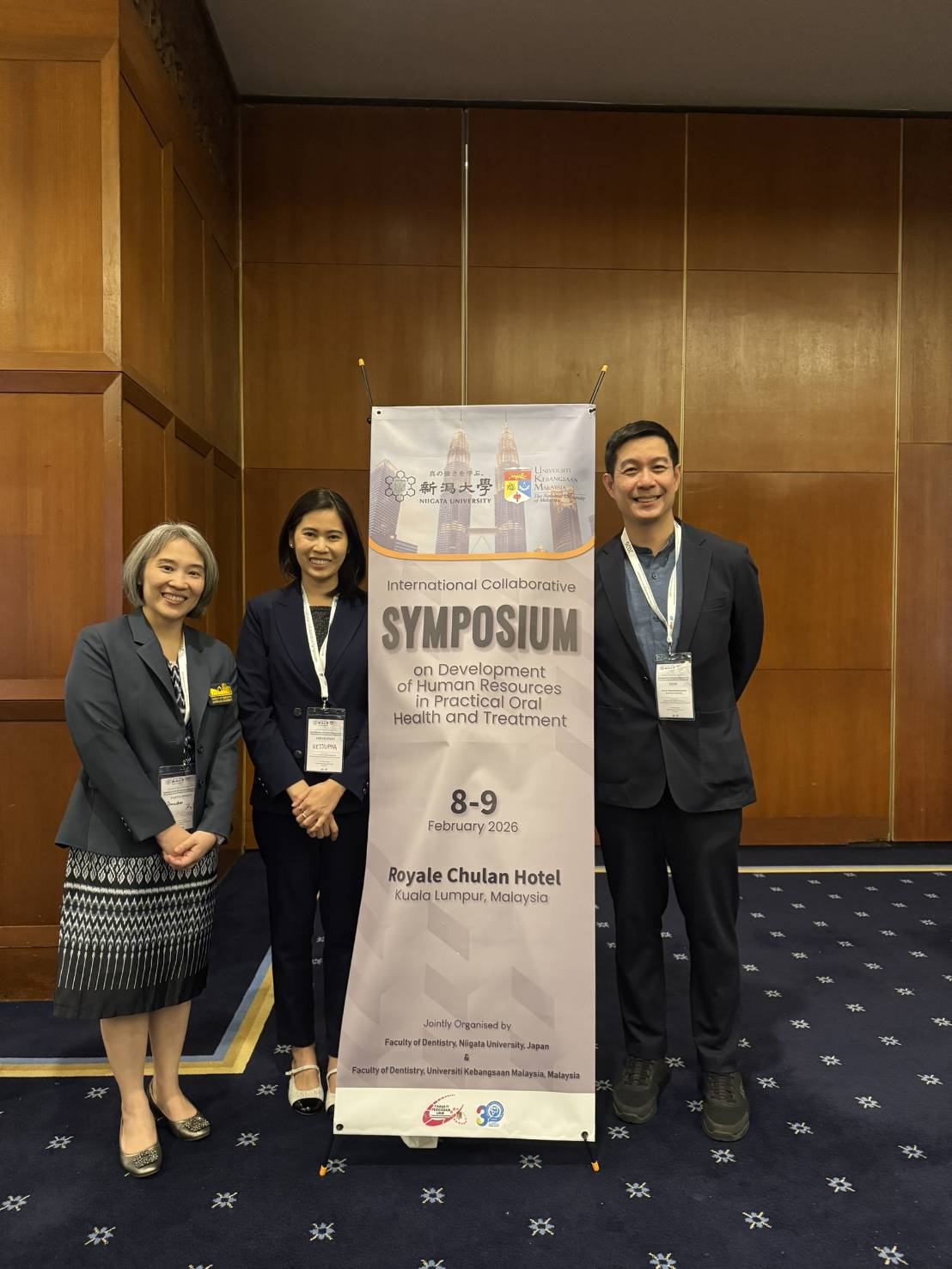KHON KAEN – Khon Kaen University (KKU) is advancing a new policy that enables faculty members to use their work in community and social service as a foundation for academic promotion. To support this initiative, the University’s Office of Academic Service and Division of Enterprise and Sustainable Society held a practical workshop on 7 November at the Sirikunakorn Building.
The workshop, titled “Achieving Academic Ranks Through Local and Social Service Work,” was designed to create a clear and structured pathway for academic staff to gain formal recognition for their community engagement efforts, placing them on par with traditional research.
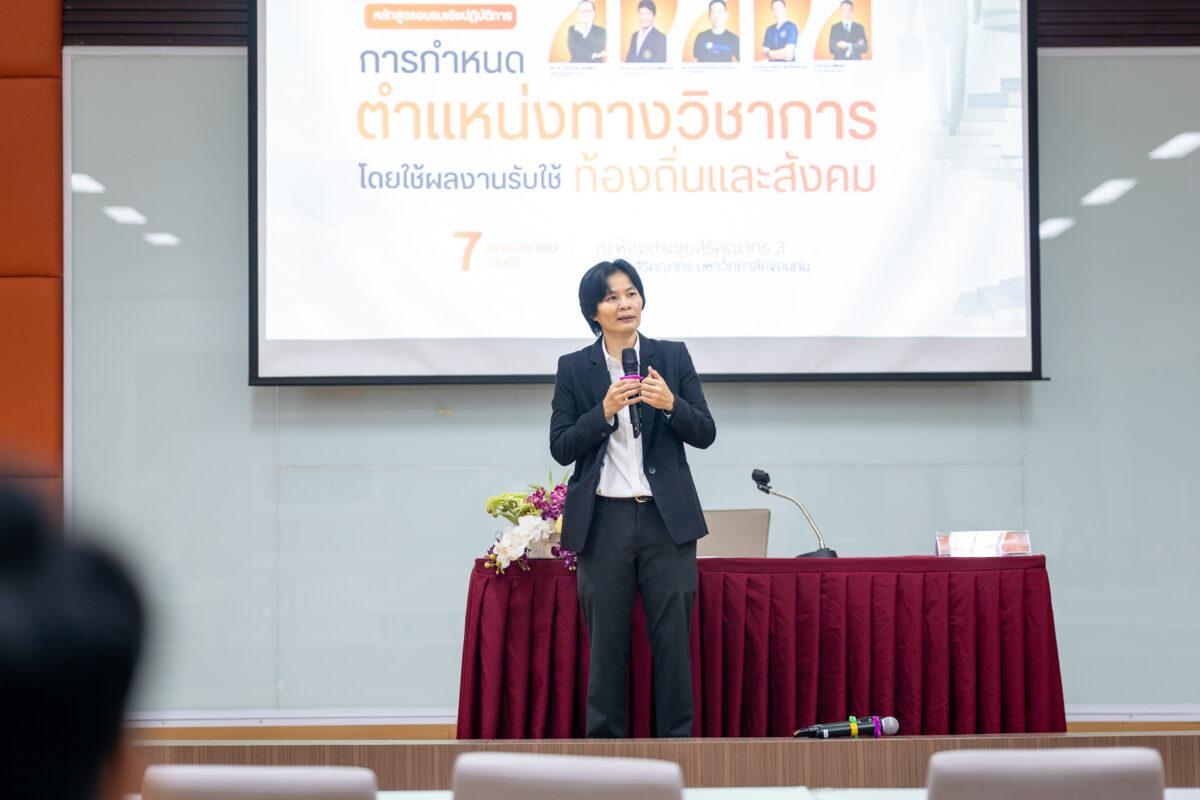
Presiding over the event, Professor Dr. Thidarat Boonmars, Vice President for Innovation and Enterprise, emphasized the university’s commitment. “Khon Kaen University has a clear policy to encourage faculty to use their contributions to the local community and society for academic advancement,” she stated. “We are dedicated to creating a system where academic service yields tangible scholarly rewards, equivalent to research. This workshop is a crucial step in providing our faculty with clear guidelines and the confidence to produce high-quality work that not only benefits their own career progression but also creates a sustainable, positive impact on society.”
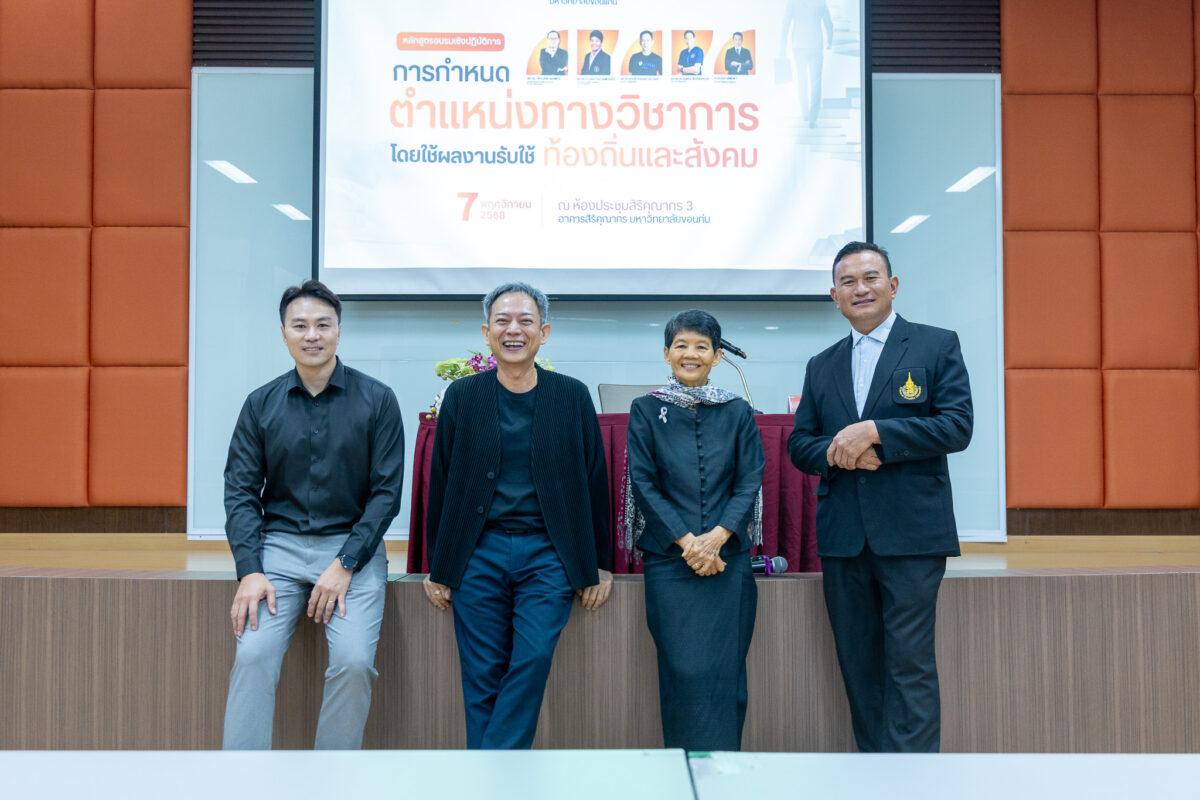
The training provided comprehensive details on the new pathway. Associate Professor Dr. Patrawit Polpinit, Vice President for Human Resources, clarified the official regulations from the Office of the Higher Education Commission (OHEC) regarding the use of social service work for promotion to the ranks of Assistant Professor, Associate Professor, and Professor.
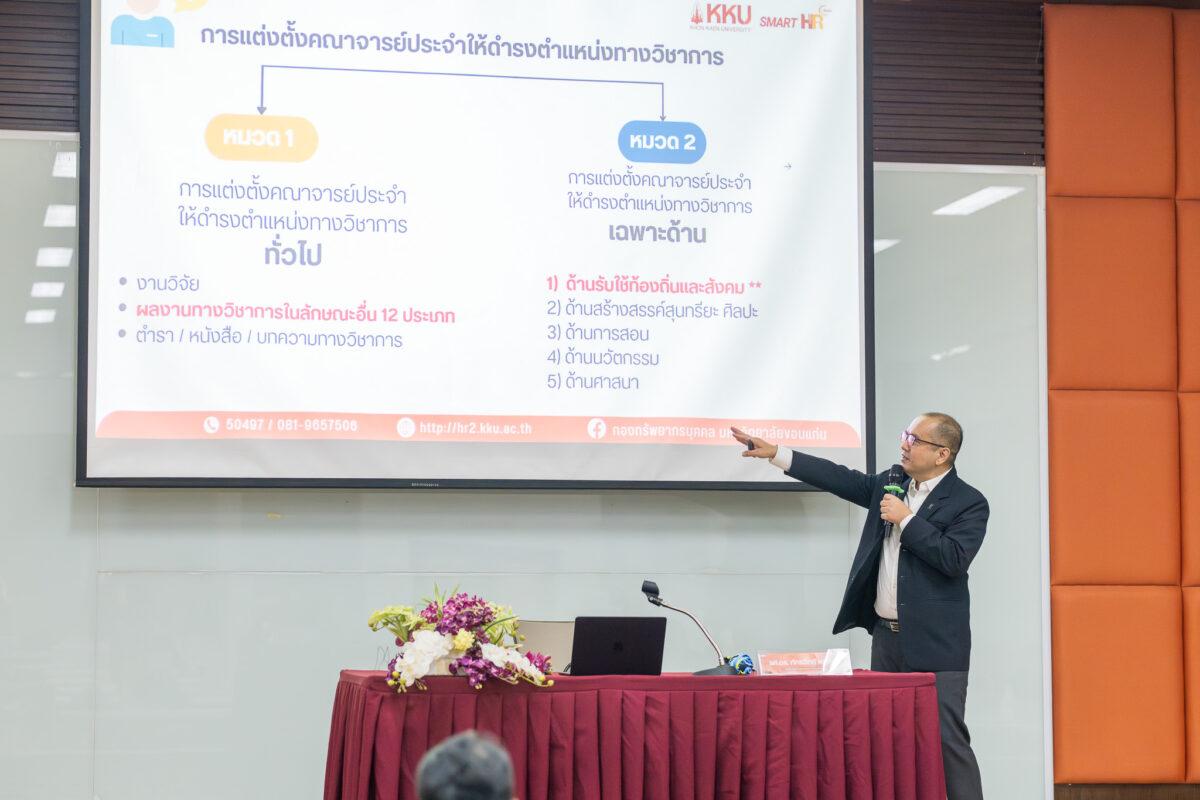
The practical portion of the workshop was led by a panel of experienced experts from several institutions, including Chiang Mai University, Naresuan University, and Prince of Songkla University. They shared techniques and processes for preparing the required documentation, focusing on key areas such as:
- Structuring the seven-chapter submission document to meet official standards.
- Demonstrating the scholarly value of a project by linking the service work to academic principles and research methodologies.
- Writing a powerful and concise summary for the review committee that highlights the innovation or new knowledge generated through social engagement.
- Compiling and presenting current work as a foundation for future, higher-level promotions.
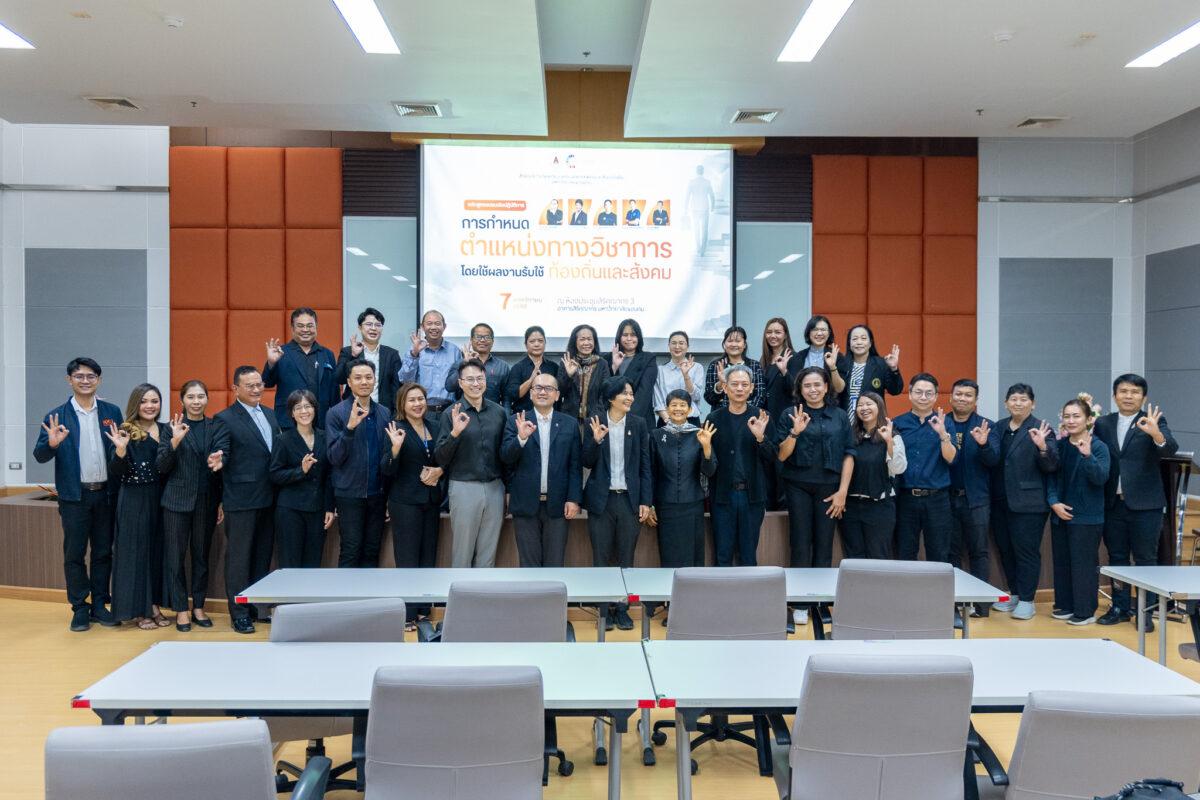
In addition to the training, the university has developed other support mechanisms, such as the Social Responsibility Index (SRI). This index serves as a key tool for evaluating the social impact of projects, enabling faculty to present the value and results of their academic service in a concrete and credible manner.

